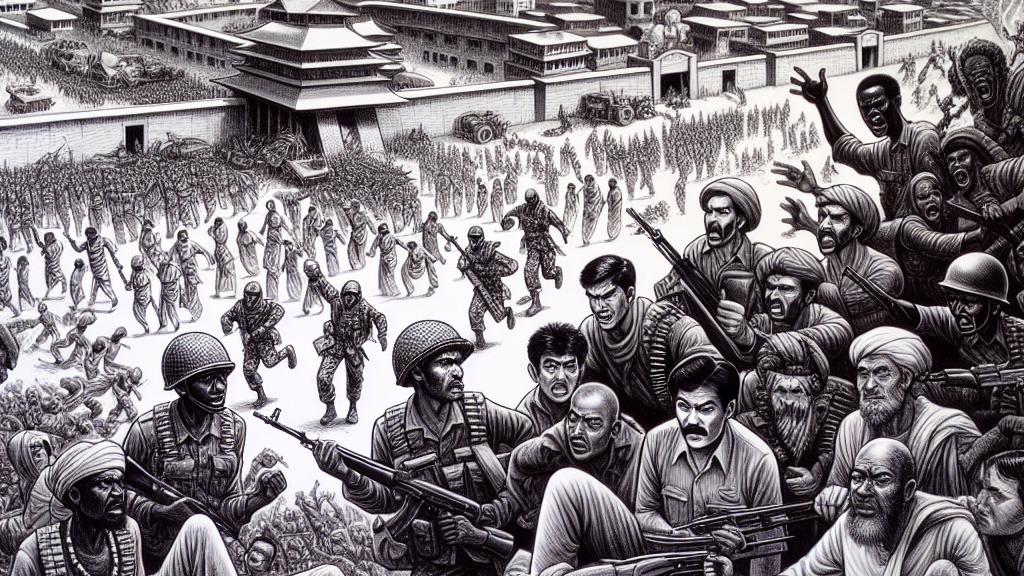Understanding the Violence in DR Congo and Its Impact
Overview
- Thirteen peacekeepers tragically lost in escalating violence.
- M23 rebels cause massive displacement and humanitarian crisis.
- International leaders urgently call for immediate ceasefires.

The Recent Clashes
In a harrowing turn of events in the Democratic Republic of Congo (DRC), the tragic loss of thirteen peacekeepers—including nine valiant South African soldiers—has highlighted the dire situation on the ground. These soldiers fought bravely against the M23 rebels as the latter advanced toward Goma, a bustling city with a population of over a million. Their sacrifice is a stark reminder of the life-threatening conditions faced by peacekeepers, yet it also underscores the humanitarian crisis spiraling out of control. The United Nations has taken the significant step of withdrawing non-essential staff from Goma, raising pressing questions about what the future holds for a region deeply embroiled in conflict.
The Role of M23 Rebels
At the heart of this turmoil lies the M23 group, whose origins can be traced back to a mutiny within the Congolese army in 2012. Although they claim to protect the Tutsi population, evidence of their brutal practices casts shadows over these assertions. Accusations against the M23 include horrific human rights violations such as summary executions, sexual violence, and the forced recruitment of vulnerable children. The consequences of this conflict are staggering—nearly 400,000 people have been displaced this year alone, with families fleeing their homes in search of safety amidst the chaos. Clearly, the human impact of this turmoil is profound and raises urgent concerns about the future of countless innocent lives caught in the crossfire.
International Responses
In response to these escalating tensions, international leaders, including French President Emmanuel Macron, have begun to voice their urgent calls for peace. These diplomatic efforts are not merely symbolic; they acknowledge the staggering toll—the displacement of over 400,000 innocent civilians highlights the pressing need for action. However, skepticism lingers, as many past ceasefires have proven ineffective, raising the question: Can sincere negotiations lead to genuine, lasting solutions? For progress to take root, a multifaceted approach is essential—one that goes beyond military intervention and addresses the underlying socio-economic issues fueling this conflict.
The Overlooked Humanitarian Impact
Amidst all these geopolitical discussions, it's crucial not to overlook the devastating humanitarian crisis unfolding on the ground. Voices from local leaders, including an Anglican bishop in Goma, echo with urgency, emphasizing that people are not only tired of violence—they are desperate for peace and willing to make sacrifices to obtain it. Reports from humanitarian organizations paint a stark picture of despair: lives have been shattered, families are displaced, and civilian casualties continue to mount. The United Nations has highlighted alarming figures, providing a clear call to action: the international community must respond swiftly and firmly. This response should prioritize civilian safety and commit to rebuilding lives torn apart by this protracted violence.

Loading...